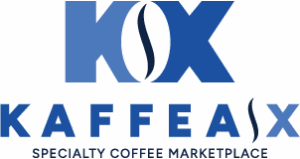The specialty coffee industry embraces the core principles of exceptional quality, full transparency, and ethical sourcing, ensuring that every cup not only delights the palate but also actively contributes to a fair and sustainable future. However, the definitions and trade practices for specialty coffee vary significantly across different countries, exporters, and importers. Standardizing specialty coffee can help reduce this inconsistency, which currently leads to confusion, pricing disparities, and lost opportunities for both producers and buyers.
In this post, we’ll explain why standardizing specialty coffee is important and necessary for building a more transparent and trustworthy global trade system.
The Current Problem: No Universal Standards
Varying Definitions of “Specialty”
One exporter might define specialty coffee as a score above 80 on the SCA scale, while another uses 84 as the minimum. Without consistency, buyers can’t confidently compare offerings. The Specialty Coffee Association (SCA) provides a baseline, but many regions interpret and apply those standards differently.
Inconsistent Use of Grading and Cupping Terms
Terms like “washed,” “natural,” “micro-lot,” or “anaerobic” get used loosely. Cupping notes vary depending on the cupper’s experience and cultural context. As a result, importers and roasters struggle to interpret descriptions or assess true value.
The Impact: Pricing Confusion and Trade Inefficiency
Misaligned Expectations Between Buyers and Sellers
When grading and scoring aren’t standardized, buyers and sellers may disagree on quality. That leads to pricing disputes, failed contracts, and long email threads trying to clarify what’s being sold. It wastes time and damages trust.
Limited Visibility for New Market Entrants
New roasters entering the market often don’t know how to assess a lot’s true value. Without access to standardized data, they may overpay—or worse, underpay—undermining their credibility and creating tension with exporters.
Why Standardization Builds Trust and Efficiency
Apples-to-Apples Comparisons
Standardized data—like harvest date, varietal, process method, and SCA score—helps buyers compare lots easily and make informed decisions. This reduces friction and speeds up purchasing.
More Transparent and Traceable Trade
When producers and exporters submit data consistently, importers and roasters gain deeper insight into origin, quality, and ethics. That transparency drives loyalty and long-term relationships—organizations like Transparent Trade Coffee advocate for this clarity in pricing and reporting.
How Kaffea-X Supports Standardization
Kaffea-X is built to bring consistency and clarity to the specialty coffee trade. Our platform simplifies listings, enhances transparency, and ensures everyone speaks the same “coffee language.”
- Standardized Listings: All coffees on our marketplace follow a universal format, complete with varietal, process, elevation, score, and lot size.
- Filter and Search Tools: Buyers can easily search by score, country, process, and availability, saving hours of back-and-forth.
- Integrated Traceability: Exporters upload verified data, and importers can see it all in one place, cutting through confusion.
Adopting a shared structure removes ambiguity, speeds up trade, and empowers both sides to focus on quality, not translation.
Start Trading Smarter with Kaffea-X
Why the Industry Must Move Together
Standardization Doesn’t Mean Losing Uniqueness
Every coffee has a story. Standardizing how we describe and present it doesn’t erase its origin—it amplifies it. Buyers can celebrate nuance without sacrificing clarity.
Technology Makes It Possible
With modern platforms like Kaffea-X and initiatives like the SCA’s cupping protocols, the tools exist to create a universal trade language. What we need now is adoption.

